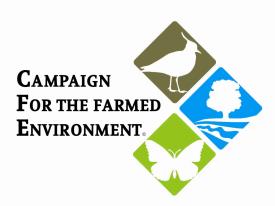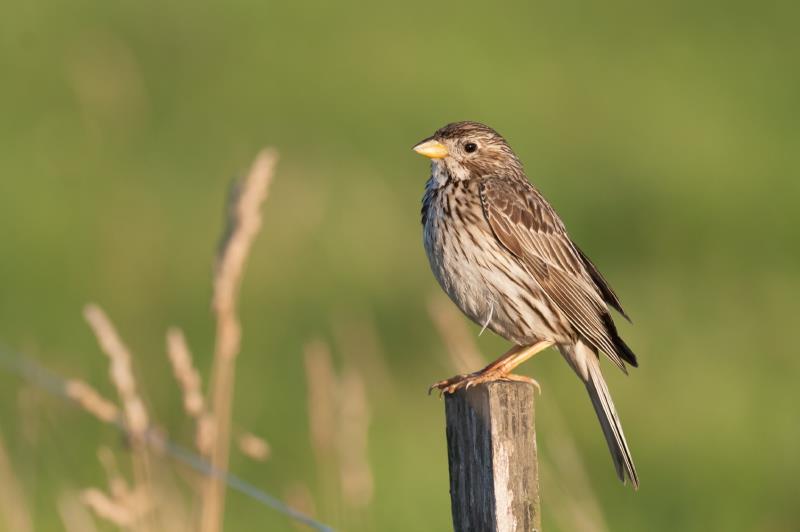 Michael Parker – Manor House Farm, Nateby
Michael Parker – Manor House Farm, Nateby
Size of farm: 245 acres
Enterprise: 170 beef store cattle and cereals
Farm type: lowland - mixed grassland and arable
Lancashire farmer Michael Parker has been involved with environmental stewardship at Manor House Farm, Nateby for the last seven years and has been enjoying the benefits ever since. Until 2001 the 245 acre farm was an intensive dairy farm, but since leaving dairying and moving into beef stores, other options were explored which would allow Michael to farm the land less intensively and in a way which was more environmentally sustainable. In 2006 130 acres were entered into a mixture of ELS and HLS agreements, whilst the remainder of the land was either rented out to neighbours or used for alternative enterprises.
The stewardship options chosen for the farm include the creation of numerous scrapes to provide feeding areas for wading birds, overwintered stubbles to again provide feed and breeding sites for birds and other wildlife such as the brown hare, and two areas of wild bird seed mix which are planted annually alongside the spring cereals. On one field alone there are five different management options - low herbicide spring cereal’s, rotation (set aside), field corner management, bird seed mix and over wintered stubble, with certain management practices being chosen to encourage a number of high priority species in the county including brown hares, grey partridge and lapwing.
Although the stewardship agreement states that the wild bird seed mixes only need to be re-sown on a two yearly basis, Michael has taken the decision to do this on an annual basis to provide greater benefits for the bird population, and he remarked on the “pleasure we have gained in seeing the variety of wildlife on the bird seed mix areas”.
All of the grassland on the farm is in stewardship and is managed with very low inputs and low stocking rates. Despite the fact that only manure is applied to these pastures, the grass is plentiful and the sward varied, with nutrient indices at target levels due to the intensive management in the past when the farm was in dairying. The low‑input system means that excess nutrients are not applied to the soil, thus reducing the risk of water pollution, and is allowing the soil to return to it’s former natural state without disturbance from machinery or excessive grazing pressure.
The farm is also home to popular fishing lakes, which attract a wide variety of birds and wildlife, including the heron and kingfisher. The lakes do not form part of the stewardship agreement and are managed voluntarily, alongside other natural ponds at the farm. Although fishing is the primary attraction for many of the visitors, Michael commented how others will come along just to enjoy the bird life and the tranquillity of the natural environment, which is something that many of us fortunate enough to live in these areas can take for granted. The farm is also home to a pair of breeding barn owls which Michael has provided nesting boxes for, and which the anglers are always keen to catch a glimpse of.

Although the current stewardship agreements at Manor House Farm expire in 2016 I asked Michael whether he would still be likely to continue with the environmental management practices on a voluntary basis. He replied “on reflection I realise how much I have learnt over the past seven years of the stewardship. It’s been a total new way of farming for me and I would probably carry on with a lot of the stewardship ideas even if we didn’t get financial reward”.
CFE co‑ordinator for Lancashire Michelle Fare added “It is great to see the work that Michael is already doing to support the environment, and although many of the measures have been established as a direct result of stewardship agreements, some practices such as the low input grassland and wild bird seed mixes could easily be continued in the future on a voluntary basis”.